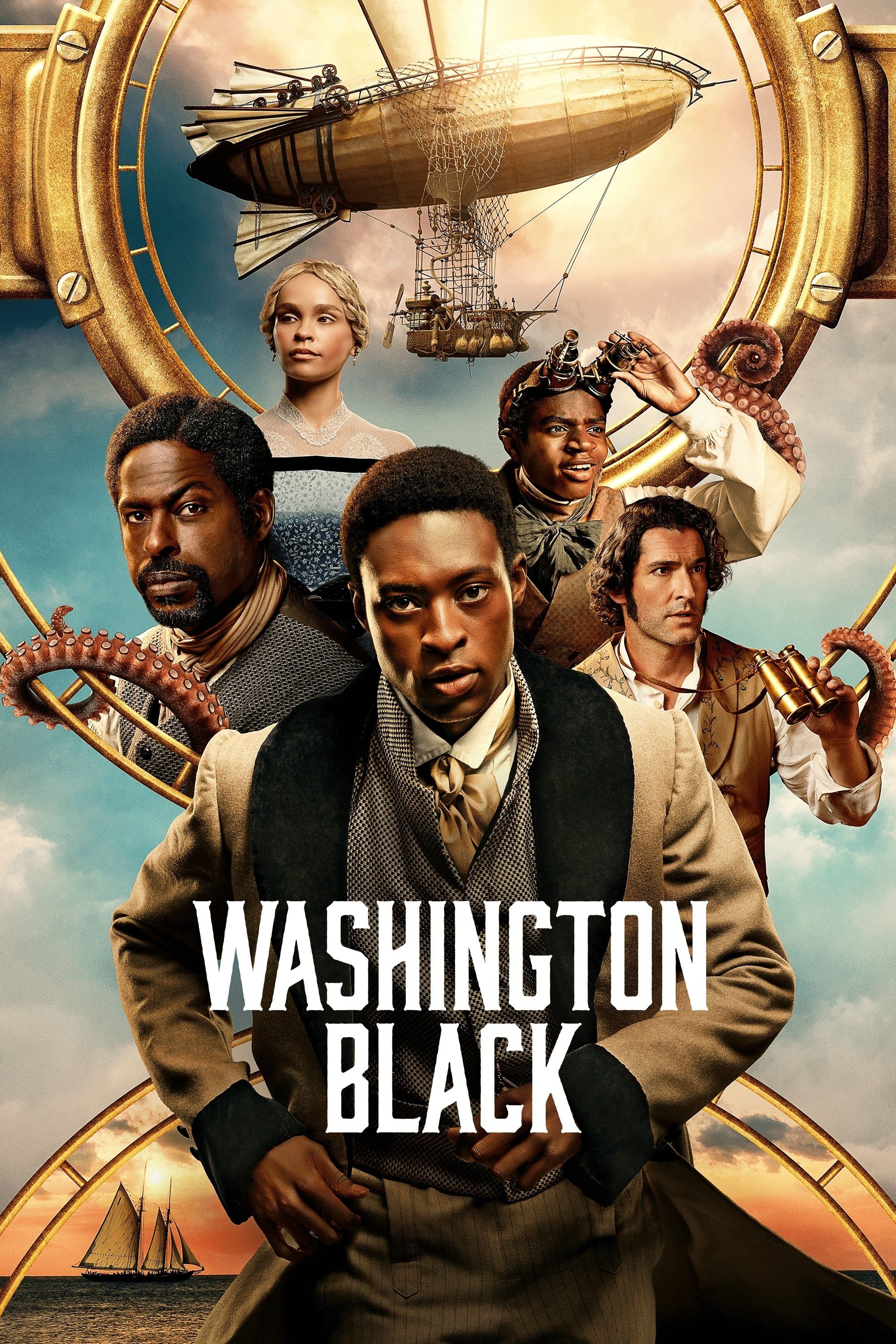The 1800s was a harrowing time for the Black community and one that has certainly been explored numerous times throughout the years, though typically with a brutally realistic depiction. While some of the most notable in recent years include the Best Picture-winning 12 Years a Slave and Will Smith’s divisive Emancipation, it has been encouraging to see some move away from the oft-explored doldrums of plantation life, which can still celebrate Black culture. Esi Edugyan’s Washington Black novel was such a reprieve, which ultimately makes the miniseries adaptation’s flaws all the more disappointing.
Developed by Twilight Zone alum Selwyn Seyfu Hinds, Washington Black explores the life of the titular character, born into slavery on a sugar cane plantation in Barbados in the early 1800s. When Christopher “Titch” Wilde, one of the sons of the plantation’s owner, takes him under his wing after recognizing his studious nature, it begins a life of running for Wash that eventually lands him in Nova Scotia, where he continues the scientific explorations Titch imbued in him. He also falls for the mixed-race daughter of a renowned scientist, risking his safety and the new life he has built.
Washington Black’s Plot Feels So Scattershot It’s Hard To Enjoy
Source Material Changes & Non-Chronological Storytelling Makes For Some Messiness
With Hinds and series writer Jennifer Johnson having a full eight episodes to work with for translating Edugyan’s novel to the screen, there’s certainly more than enough real estate to bring the entirety of Washington Black‘s 400 pages to life. Yet, the show is a watered-down version of its story. The time spent exploring Wash’s life in Barbados is quite rushed and tame, despite the apparent cruelty of Titch’s brother as the plantation’s proprietor. A lot of the dialogue also lacks the same elegance as Edugyan’s writing.
One of the biggest areas where Washington Black failed to resonate with me was in its shift to a non-chronological structure with its plot, jumping back and forth between Wash’s childhood in Barbados and adventures with Titch to his current struggles with keeping his identity a secret from slave hunters. While this structure does make for a few points of intrigue as past and present narrative threads connect thematically, it ultimately makes the show feel so scattered. Just when a storyline begins to intrigue, it’s left behind and sometimes forgotten for a while.
This also makes the overall pacing of Washington Black inconsistent in its flow. The first two episodes clock in close to an hour long each, and certainly do feel as such with how stuffed they are. As the show gets towards its middle, the episodes lose upwards of 20 minutes, but maintain the same scattered pace of their predecessors that makes for some rocky viewing.
Much Of The Novel’s Heart Is Still Intact
Its Cultural & Historical Themes Are Just As Important As Anything Else
Though the story does have some flaws, Hinds does retain a fair amount of Washington Black‘s heart that helps it overcome its issues. A good chunk of Titch and Wash’s travels are changed for the show, but it’s done so in a way that holds greater thematic significance for both characters, while also touching upon some important historical moments, particularly the abolitionist movement and the appearance of an important figure at the heart of it.
Thankfully, Hinds, Johnson and the rest of their writing staff clearly understand the importance of this and properly give Tanna some powerful moments to highlight the troubling-yet-complicated roots of passing.
One of the most effective ways Washington Black keeps Edugyan’s cultural discussions intact is through Tanna’s arc as a lighter-skinned, mixed-race woman who, since her mother’s death when she was a child, has struggled with adjusting to living with her white father. Despite it still being a point of discussion in modern society, it doesn’t feel like the concept of passing is properly explored much in media. The appropriately titled Tessa Thompson and Ruth Negga-led adaptation of Passing has been the most insightful of recent years.
Thankfully, Hinds, Johnson and the rest of their writing staff clearly understand the importance of this and properly give Tanna some powerful moments to highlight the troubling-yet-complicated roots of passing. As her father, Rupert Graves’ Mr. Goff, frequently attempts to explain to her, he largely pushes this on her to keep her safe from the dangers of their world. But, as Tanna correctly counters in some excellently scripted moments, this unfairly limits her sense of identity.
Additionally, the show does an excellent job of touching on the two sides of the abolition coin from the 1800s, with those who would free slaves with the use of violence and those who thought the only way to stop slavery was through reason. Through contrasting Wash and Titch’s life experiences, the writing properly highlights why the likes of Tom Ellis’ well-meaning mentor can more easily tout notions of peacefully uprooting societal constructs than those actually constricted by them.
Washington Black’s Cast Are Magnificent In Their Roles
Ernest Kingsley Jr. Is A Born Star
With all the weight in its source material, Hinds certainly needed a talented roster to bring Washington Black‘s characters to life, and the cast is magnificent, particularly Ernest Kingsley Jr. in the title role. The English actor, still fairly fresh to the screen after shorter appearances in Netflix’s Sandman and StudioCanal’s War of the Worlds adaptations, proves a real delight as the older version of Wash, bringing a lot of warmth and intelligence to the character to make him a mesmerizing protagonist to follow.
Kingsley Jr. isn’t the only shining star in Washington Black‘s roster, though. Ellis feels as though he’s finally shed his Lucifer skin as the bright-eyed Titch. Sterling K. Brown is an intriguing mystery as he balances a benevolent, supportive side with a darker nature under the surface of Medwin, and Iola Davis is truly captivating as Tanna. While part of me wishes they were offered better material to work with in parts of the show, they still ultimately succeed in livening it up and making it a worthwhile venture.
Washington Black begins streaming on Hulu on July 23.

Washington Black
- Release Date
-
July 23, 2025
- Network
-
Hulu
-

Ernest Kingsley Jr.
George Washington ‘Wash’ Black
-

Sterling K. Brown
Medwin Harris
- The show has a lot of a heart and important social commentary.
- The production feels appropriately grand in parts.
- The cast are magnificent, particularly Ernest Kingsley Jr. & Iola Evans.
- The change to a non-chronological structure makes the show feel scattered.
- Some of the more emotional storytelling in the novel feels watered-down.
- Many scenes feel very static in their visual presentation.
This story originally appeared on Screenrant


